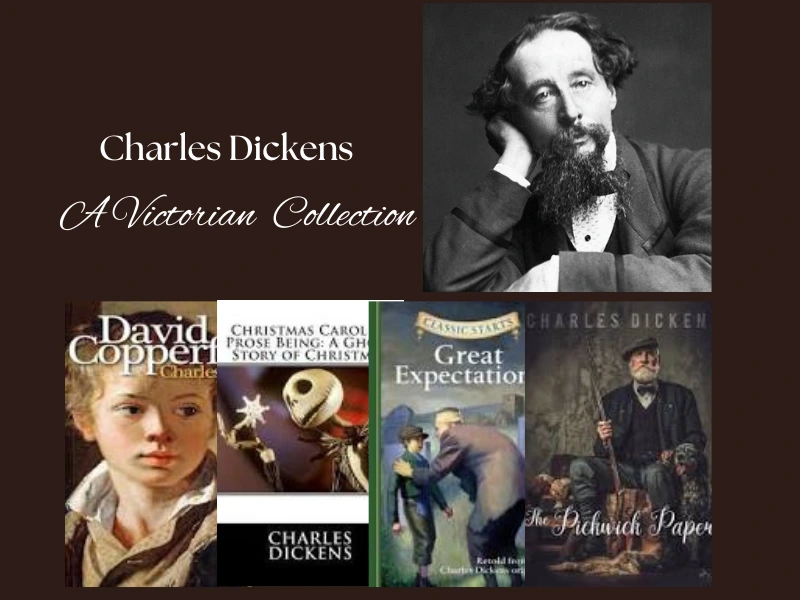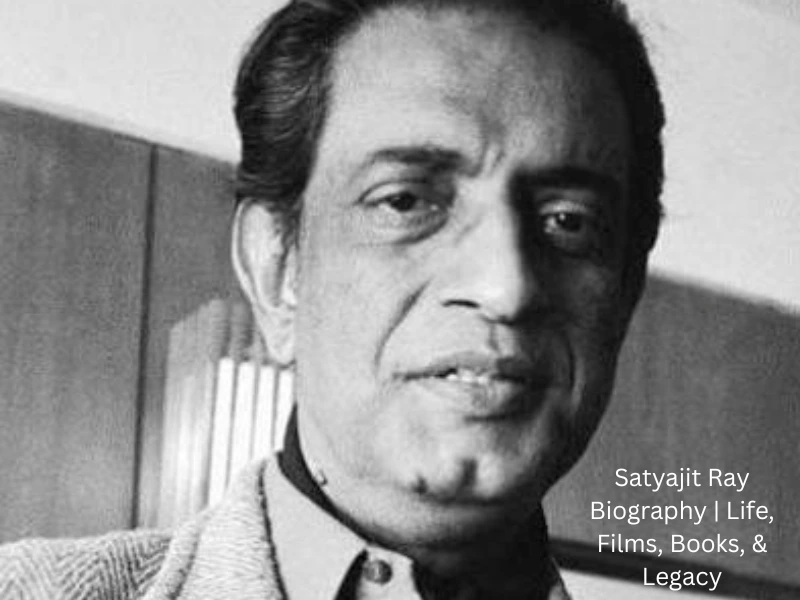Charles Dickens: The Life and Legacy of a Literary Genius
Charles Dickens remains among the most celebrated authors in world history, capturing the imagination of people for more than a century due to his rich imagery and great social commentary. With these timeless works, Dickens allowed 19th-century society to see itself while keeping entire generations enthralled with immortal characters and exciting stories. Now, let’s get into the life, achievements, and legacy of the literary giant.
Early Life and Background
Charles John Huffam Dickens was born on February 7, 1812, in Portsmouth, England. He grew up in a poor family. His father was imprisoned for debt when Charles was very young, and at 12, he was sent to work in a factory—an experience that would influence his later writings. Despisegraduating from that, Dickens continued his pursuit in education, becoming a clerk, then transitioning to journalism, for which he became a published writer.
The Journey of a Writer
Dickens’ First Steps into Literature
He first began as a law clerk but then switched to journalism. His first published piece of writing was “A Dinner at Poplar Walk” in 1833. It was only in 1836 that his first novel, The Pickwick Papers, caused the boom in his writing career.
The Role of Journalism in His Career
Dickens was a reporter, covering parliamentary debates and election campaigns. His perspective was thus uniquely broadened in his perception of the problems society faced. Such issues he exposed through his novels include poverty, child labor, and systemic corruption.
His Rise to Fame: Pickwick Papers and Beyond
Dickens’s serial publications gained much popularity by opening literature to the masses. His novels, such as Oliver Twist and Nicholas Nickleby, have sealed his position as a great narrative teller. His serialism of storytelling kept the readers hungry for each new episode.
Charles Dickens: A List of Famous Books
Charles Dickens is one of the most famous novelists from the Victorian era. He has some of the most enduring stories and characters ever told. His novels usually depict struggles of the poor, injustice in society, and man’s endurance. Some of his most popular books include:
1. The Pickwick Papers (1836–1837)
Charles Dickens published his first novel, The Pickwick Papers, and it was a lighthearted and even humorous account of the adventures experienced by Mr. Samuel Pickwick and his friends from the Pickwick Club in serialized format, which is why it immediately gained wide popularity due to its witty satire in British society.
Why It’s Significant:
- Established Dickens as a household name.
- Showcased his talent for creating memorable, comedic characters.
2. Oliver Twist (1837–1839)
Oliver Twist is among the most popular books from Dickens, detailing a tale of an orphaned boy who faces challenges during his life in Victorian England. The novel is reflective of the harsh realities in regard to child labor, poverty, and crime in England.
Famous Characters:
- Oliver Twist
- Fagin
- The Artful Dodger
- Bill Sikes
Themes:
- Social injustice and exploitation.
- The struggle between good and evil.
3. Nicholas Nickleby (1838–1839)
This novel is about Nicholas Nickleby, a young man who has to take care of his family after his father’s death. Full of humor, drama, and heartwarming moments, Nicholas Nickleby showcases Dickens’ ability to balance lightheartedness with serious themes.
Why It’s Beloved:
- Features a mix of villainous and virtuous characters.
- Advocates for educational reform by exposing the harsh treatment in boarding schools.
4. The Old Curiosity Shop (1840-1841)
This is a sentimental novel based on Little Nell, who is a good-hearted girl and lives with her grandfather in a curiosity shop. It is a touching story of innocence, sacrifice, and familial love.
Famous for:
- Evoking strong emotional responses from readers.
- Depicting the struggles of the lower class in a changing society.
5. Barnaby Rudge (1841)
This historical novel is set in the backdrop of the Gordon Riots of 1780, where the writer combines history with fiction. It goes into social unrest and personal conflict through its title character, Barnaby, who suffers from developmental issues.
Unique Aspect:
- One of Dickens’ few ventures into historical fiction.
- Highlights the dangers of mob mentality.
6. Martin Chuzzlewit (1843-1844)
This satirical novel explores greed and selfishness through the life of Martin Chuzzlewit and his family. While initially less popular than Dickens’ other works, it later gained recognition for its humor and critique of society.
Noteworthy:
- Dickens’ experiences during his trip to America influenced parts of the story.
- Features a journey of redemption and self-discovery.
7. A Christmas Carol (1843)
Perhaps Dickens’ most famous work, A Christmas Carol, is a novella that tells the story of Ebenezer Scrooge, a miserly old man transformed by visits from the Ghosts of Christmas Past, Present, and Future. This heartwarming tale is a staple of holiday traditions.
Key Themes:
- Redemption and generosity.
- The spirit of Christmas.
Why It’s Iconic:
- Universally loved for its timeless message.
- Adapted into countless films, plays, and musicals.
8. Dombey and Son (1846-1848)
The novel explores pride, family life, and the effect of industrialization. It describes the story of Paul Dombey, a wealthy merchant, and his relationship with his son and daughter.
Significance:
- One of Dickens’ more serious and reflective works.
- Addresses societal changes during the Industrial Revolution.
9. David Copperfield (1849–1850)
Often considered Dickens’ most autobiographical novel, David Copperfield traces the life of its titular character from childhood to maturity. It is a rich tapestry of human experiences and emotions.
Famous Characters:
- David Copperfield
- Uriah Heep
- Wilkins Micawber
- Betsey Trotwood
Why It Stands Out:
- Known for its deeply personal narrative.
- Explores themes of perseverance, love, and personal growth.
10. Bleak House (1852-1853)
Bleak House is a complex and ambitious novel that critiques the British legal system through the story of a prolonged court case, Jarndyce v. Jarndyce. It interweaves multiple storylines and features one of Dickens’ most compelling heroines, Esther Summerson.
What Makes It Unique:
- A mix of first-person and third-person narration.
- Criticism of social inequality and bureaucratic corruption.
11. Hard Times (1854)
This is a short and yet powerful novel set within an imaginary industrial town, criticizing the dehumanizing aspects of industrialization. It concentrates on the lives of workers and explores the consequence of utilitarian philosophy: Hard Times.
Major Themes:
- The clash between imagination and practicality.
- The struggles of the working class.
12. Little Dorrit (1855-1857)
Little Dorrit is an exploration of themes of debt, imprisonment, and class through the life of Amy Dorrit, a good and charitable young woman. The novel is also a satire about the ineffectiveness of bureaucracy in the British government.
Significant Aspects:
- Dickens’ focus on the flaws of the financial system.
- A strong, resilient female protagonist.
13. A Tale of Two Cities (1859)
Set against the backdrop of the French Revolution, A Tale of Two Cities contrasts life in London and Paris. It is a tale of love, sacrifice, and resurrection, famous for its opening line: “It was the best of times, it was the worst of times.”
Memorable Characters:
- Charles Darnay
- Sydney Carton
- Madame Defarge
Why It’s a Classic:
- Combines personal stories with historical events.
- Celebrated for its dramatic and emotional ending.
14. Great Expectations (1860-1861)
Great Expectations is the coming-of-age story of Pip, an orphan who dreams of becoming a gentleman. The novel explores themes of ambition, identity, and morality.
Key Highlights:
- Iconic characters like Miss Havisham and Estella.
- A critique of social mobility and human relationships.
15. Our Mutual Friend (1864-1865)
Dickens’ last completed novel is Our Mutual Friend, which explores issues of wealth, class, and human greed. The plot follows the inheritance of a huge fortune and the complications it causes.
Noteworthy:
- A dark, ironic look at Victorian society.
- Rich in symbolism and layered storytelling.

Also read Agatha Christie Biography
Themes and Style in Dickens’ Works
Social Injustice as a Central Theme
Dickens’s novels served as an expression to enlighten society of its wrongs, particularly with the poor and vulnerable class. His stories always told of the cruel Victorian England realities that had to be faced by readers: issues of class disparity and child exploitation.
Memorable Characters and Emotional Depth
From the miserly Ebenezer Scrooge to the endearing Pip, Dickens created some of the most memorable characters in literature. His ability to blend humor with emotional depth made his characters relatable and timeless.
Humor and Satire in Dickens’ Writing
Despite serious topics being discussed, Dickens managed to add humor and satire to his works. This balance made his novels not only thought-provoking but also immensely entertaining.
Dickens’ Influence on Society and Literature
Championing Social Reforms
Dickens took his platform to bring about change. His graphic description of social issues incited public outcry and promoted reforms in child labor laws and education systems.
Contributions to the Victorian Era
He is a quintessential figure from the Victorian era. Dickens’ works reflected the nuances of 19th-century England. His stories captured the moral dilemmas, industrial advancements, and social hierarchies of his time.
Global Impact and Recognition
Dickens’ work spread to the farthest corners of England. His works were translated into numerous languages and adapted into films, becoming celebrated worldwide for their universal themes.
The Personal Side of Charles Dickens
Dickens as a Family Man
Although he had ten children, the relationships that Dickens had with his family were complex. Because of the demands of his career, he rarely had time to attend to family life, leading to a tension at home.
Romantic Relationships and Scandals
Dickens was attacked in the media for separation from his wife, Catherine, and having an affair with actress Ellen Ternan. These scandals presented the more human, imperfect face of the celebrated author.
His Love for the Stage and Public Readings
An avid performer, Dickens loved dramatic readings of his works, which drew a huge crowd. His dramatic flair brought his characters to life and deepened his connection with his audience.
The Enduring Legacy of Charles Dickens
Why His Stories Still Resonate Today
Dickens’ themes of justice, compassion, and personal growth remain relevant. His works continue to inspire discussions on societal issues and personal morality.
Adaptations in Modern Media
Countless adaptations have been made on the films and stage performances of his stories. Classics like A Christmas Carol are retold during the holiday season, ensuring that his legacy lives on.
Commemorations and Museums Dedicated to Dickens
The Charles Dickens Museum in London and many commemorative events celebrate his contributions to literature and culture.
Famous Quotes by Charles Dickens: Timeless Words of Wisdom
Charles Dickens is an acclaimed author in literary history who has left behind so many thought-provoking and memorable quotes. Brimming with wit, wisdom, and social commentary, his works are still felt among readers today. This article is a collection of the best quotes from Charles Dickens, categorized for easy discovery.
1. Quotes About Life and Humanity
“It was the best of times, it was the worst of times, it was the age of wisdom, it was the age of foolishness.” (A Tale of Two Cities)
“We need never be ashamed of our tears.” (Great Expectations)
“There is a wisdom of the head, and a wisdom of the heart.” (Hard Times)
2. Quotes on Love and Relationships
“I wish you to know that you have been the last dream of my soul.” (A Tale of Two Cities)
“The pain of parting is nothing to the joy of meeting again.” (Nicholas Nickleby)
3. Quotes About Society and Justice
“Reflect upon your present blessings, of which every man has plenty; not on your past misfortunes, of which all men have some.” (A Christmas Carol)
“The law is an ass.” (Oliver Twist)
4. Quotes on Ambition and Success
“Take nothing on its looks; take everything on evidence. There’s no better rule.” (Great Expectations)
“Procrastination is the thief of time.” (David Copperfield)
5. Quotes About Christmas and Generosity
“I will honour Christmas in my heart, and try to keep it all the year.” (A Christmas Carol)
“God bless us, every one!” (A Christmas Carol)
6. Quotes About Childhood and Innocence
“In the little world in which children have their existence, whosoever brings them up, there is nothing so finely perceived and so finely felt as injustice.” (Great Expectations)
“It is a melancholy truth that even great men have their poor relations.” (David Copperfield)
“Childhood never deserts the poet, but he loves to call it up at will.” (The Pickwick Papers)
7. Inspirational Quotes
“The sun himself is weak when he first rises, and gathers strength and courage as the day gets on.” (The Old Curiosity Shop)
“Do all the good you can, and make as little fuss about it as possible.”
“Whatever I have tried to do in life, I have tried with all my heart to do it well.”
8. Quotes About Characters and Stories
“There are books of which the backs and covers are by far the best parts.” (Oliver Twist)
“Every traveler has a home of his own, and he learns to appreciate it the more from his wandering.” (David Copperfield)
Conclusion
The extraordinary life, with timeless works, placed Charles Dickens among literary giants whose impact spans generations. While shedding light on some societal injustices to forming characters that one can hardly forget, his legacy still burns brightly today, like in Victorian England.
FAQs about Charles Dickens
What did Charles Dickens famous for?
Charles Dickens is famous for his vivid storytelling, memorable characters, and his critique of social injustices during the Victorian era.
What are 5 books Charles Dickens wrote?
Oliver Twist
A Christmas Carol
David Copperfield
Great Expectations
A Tale of Two Cities
What was Charles Dickens’ most famous piece of work?
While opinions vary, A Christmas Carol is often considered his most famous work due to its timeless message and enduring popularity.
What was Charles Dickens’ famous quote?
“No one is useless in this world who lightens the burdens of another.”




Someone necessarily help to make seriously posts I might state. This is the first time I frequented your website page and thus far? I amazed with the analysis you made to make this particular submit extraordinary. Fantastic activity!
What’s Happening i am new to this, I stumbled upon this I’ve found It absolutely useful and it has aided me out loads. I hope to contribute & assist other users like its aided me. Good job.
Hi there! This is my first comment here so I just wanted to give a quick shout out and tell you I genuinely enjoy reading through your articles. Can you suggest any other blogs/websites/forums that deal with the same topics? Thank you so much!
An attention-grabbing dialogue is value comment. I think that you should write more on this topic, it won’t be a taboo topic but usually persons are not sufficient to speak on such topics. To the next. Cheers
When I initially comjmented I seem to have clicked on the -Notify mee when new comments are added-
checkbox and from now on whenever a comment is added I gett 4 emails
with the exact same comment. There haas too be a means you can remove me from that service?
Thanks! https://yv6bg.mssg.me/
Admiring the persistence you put into your website and detailed information you present. It’s nice to come across a blog every once in a while that isn’t the same out of date rehashed material. Excellent read! I’ve bookmarked your site and I’m including your RSS feeds to my Google account.